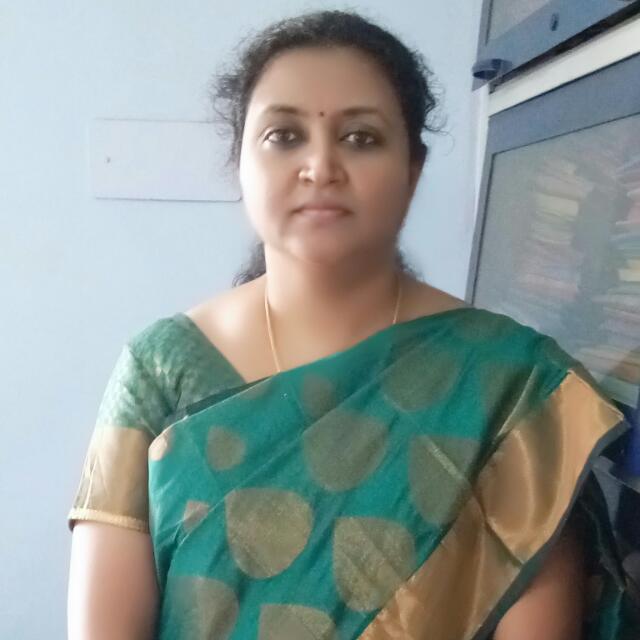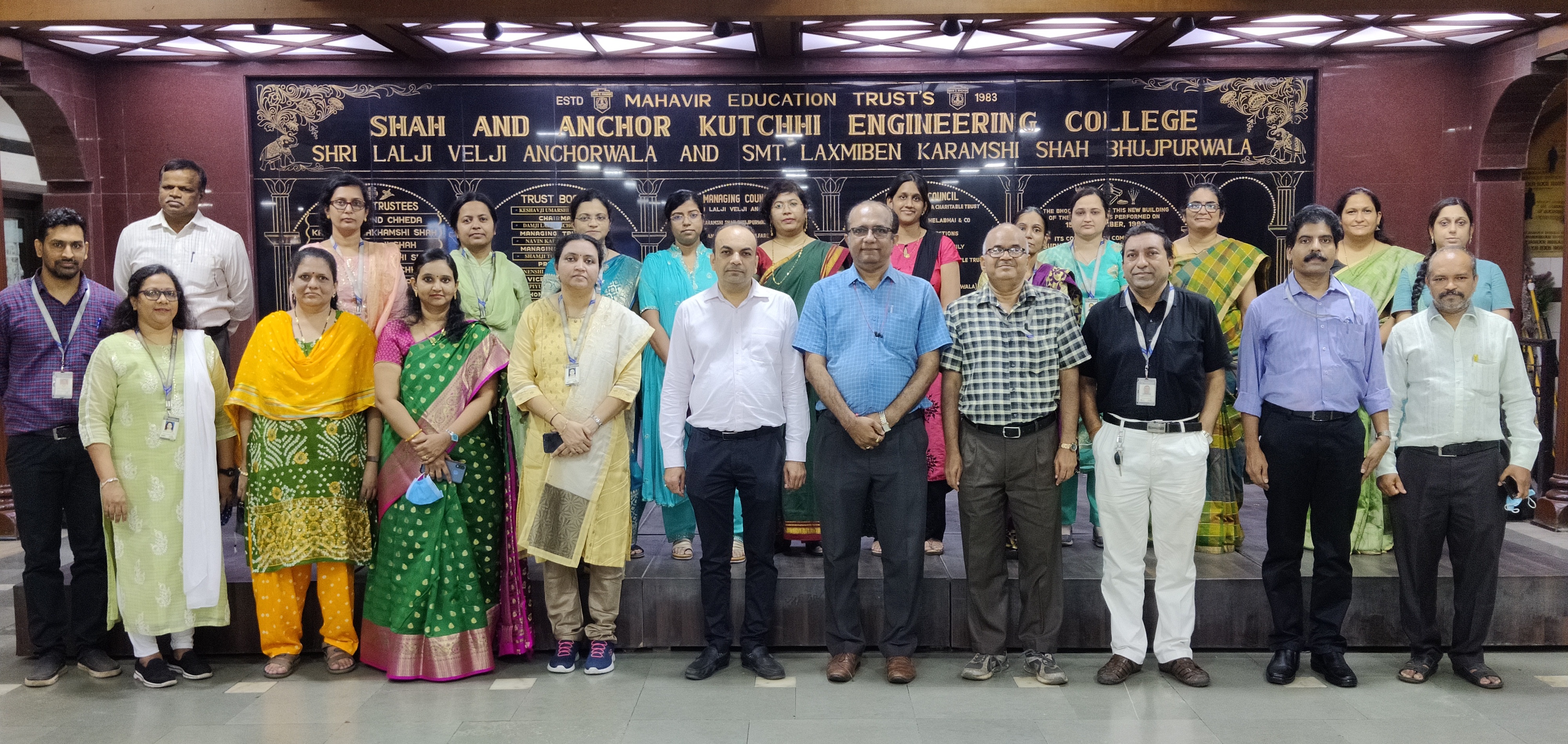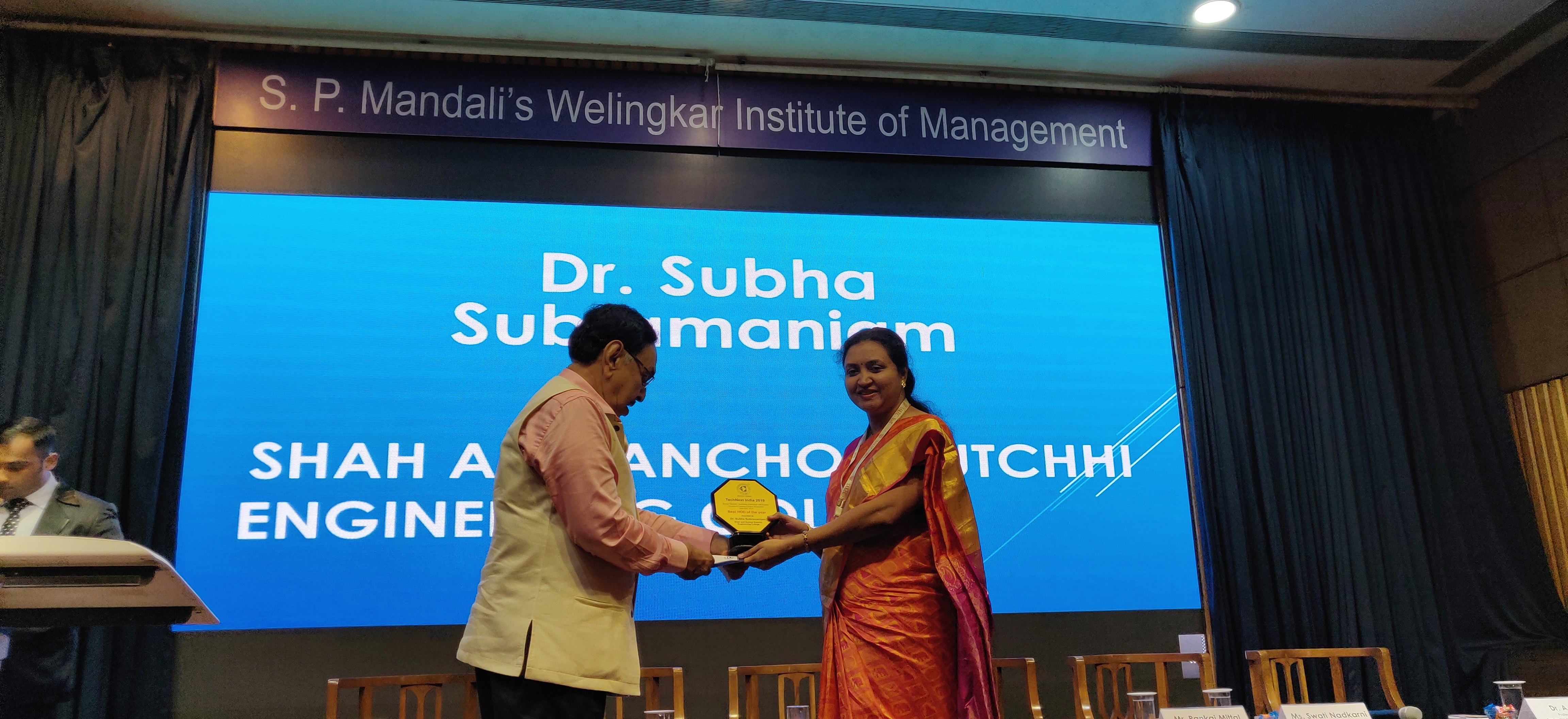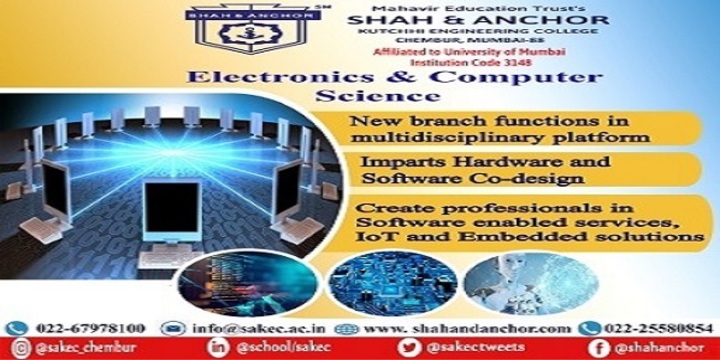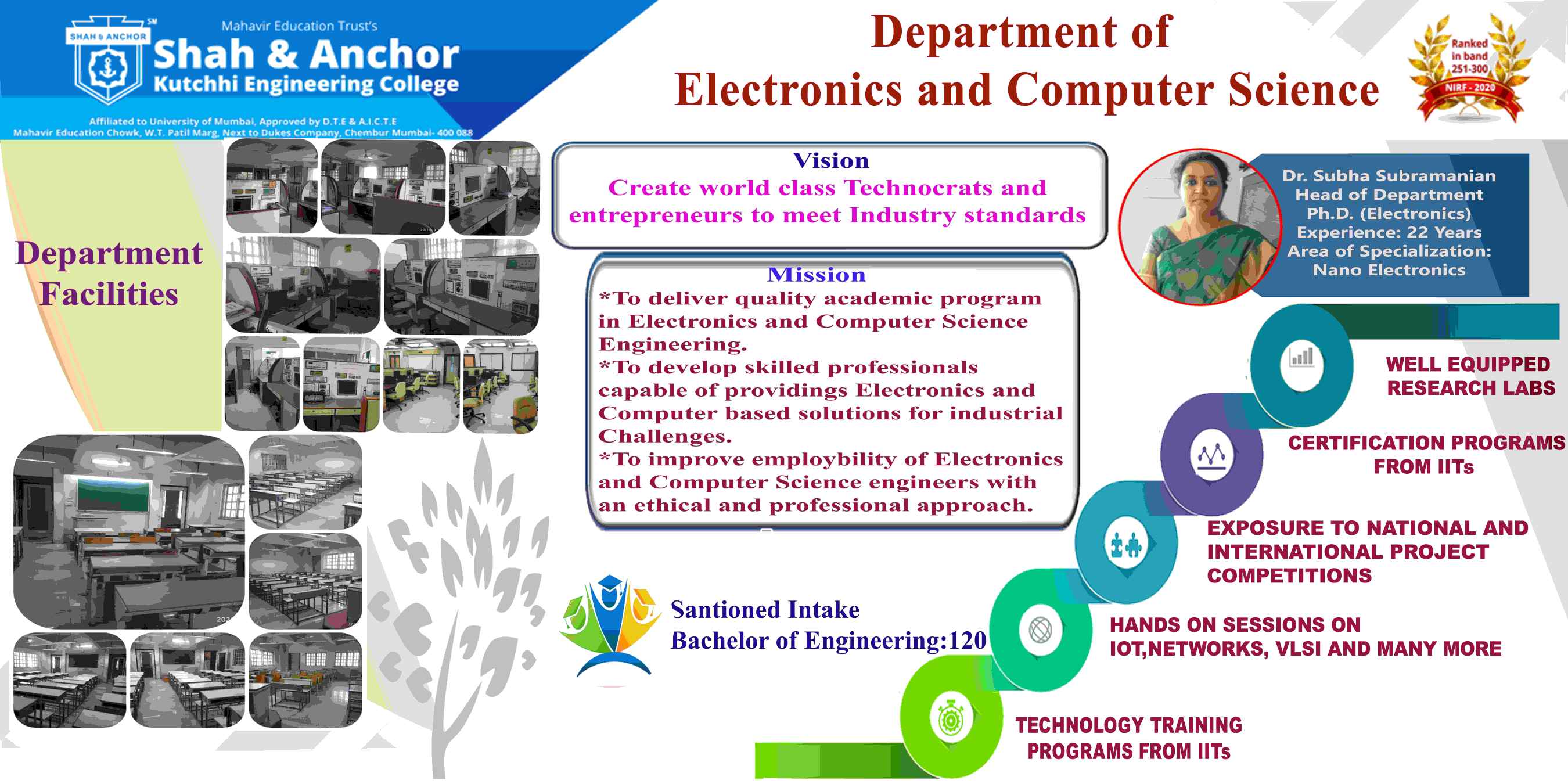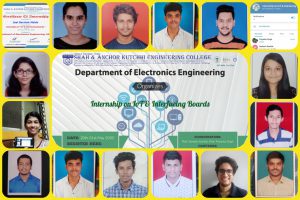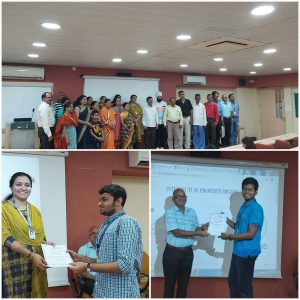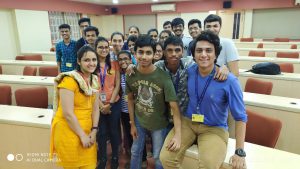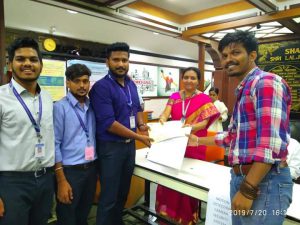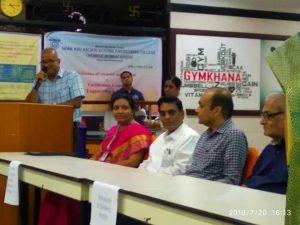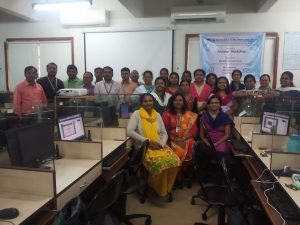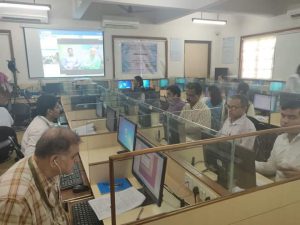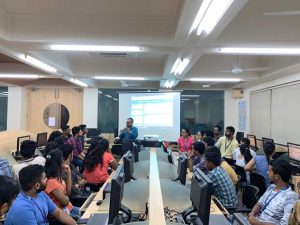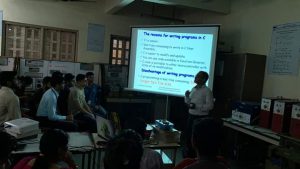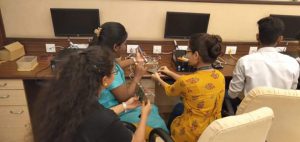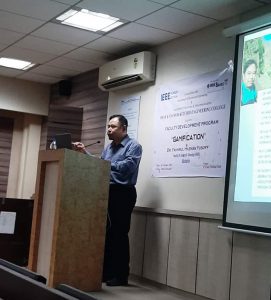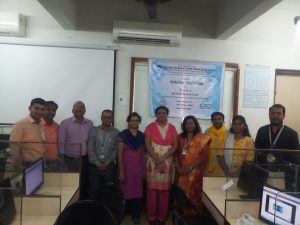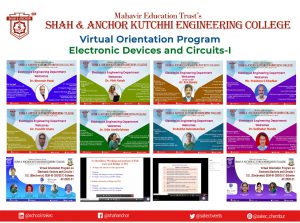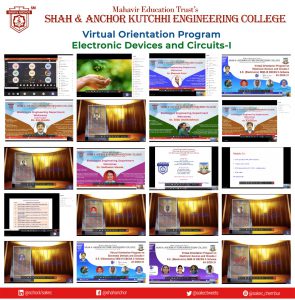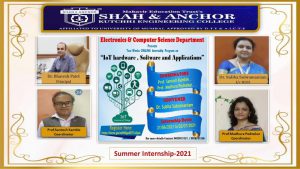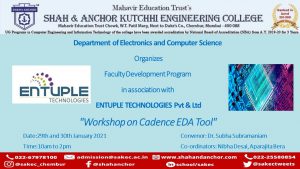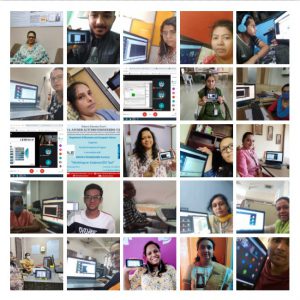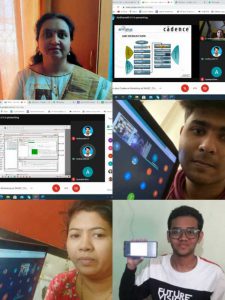Department of Electronics and Computer Science (formerly known as Electronics)
Impart quality education in Electronics and Computer Science Engineering to create world class technocrats and entrepreneurs to meet industry standards.
M1- To deliver quality academic program in electronics and computer science engineering.
M2- To develop skilled professionals capable of providing Electronics and computer-based solutions giving emphasis to R&D for meeting industrial challenges.
M3- To improve employability and entrepreneurship of electronics and computer science engineers with ethical and professional approach.
Program Specific Outcomes
PSO1-To analyse electronics systems applying principles of mathematics and engineering sciences, to develop innovative ethical solutions to complex engineering problems with team spirit and social commitment.
PSO2- To develop solution for real world problems based on principles of computer hardware, advanced software and simulation tools with a focus to devise indigenous, eco-friendly and energy efficient projects.
Dr. Subha Subramaniam
Associate Professor & I/c Head of Department
Ph.D. (Electronics), M.E.(Electronics) & B.E.(Electronics & Communication Engineering)
Teaching Experience: 20 Years
Area of Specialization: Nano Electronics, Nano Devices and Circuits, VLSI Design and Embedded Systems
With great pleasure, I welcome you to the Department of Electronics and Computer Science (formerly known as Electronics), which has the honour of being the oldest department of the college. The strength of the department lies in the highly qualified and experienced staff who regularly update their technical skills, publish papers in National and International journals and conduct various Faculty Development and Short Term Training Programmes. Our students are encouraged to take up internship opportunities within the college, as well as in industries. Various guest lectures, workshops and project competitions are arranged to enhance student skills. The department is equipped with advanced laboratories for VLSI, Embedded Systems, Robotics, Advance Digital Signal Processing and Power Electronics. By providing an excellent academic and physical environment to the students, we strive to develop quality electronics engineers, trained to apply their knowledge in solving real world challenges.
Program Offered |
Sanctioned Intake |
Year of Establishment |
B.E.(ELECTRONICS ENGINEERING) |
120 |
1985 |
M.E.(ELECTRONICS ENGINEERING) |
9 |
2011 |
|
Computer Engineering Program and Electronics Engineering Program of the college have been awarded provisional accreditation by National Board of Accreditation (NBA) from August-2014 for 2 Years w.e.f. 06-08-2014. Computer Engineering Program and Information Technology Program have been awarded accreditation by National Board of Accreditation (NBA) from A.Y. 2019-20 for 3 Years.
| |
| For more Notices Click Here |
HIGHLIGHTS
Research Publications
External Internships
Internal Internships
Staff Awards
Events
Books Published
Program Educational Objectives
PEO1- To develop a strong foundation of engineering fundamentals to build successful careers maintaining high ethical standards.
PEO2- To equip graduates to pursue higher studies and research activities while accomplishing lifetime learning.
PEO3-To inculcate team spirit and leadership qualities in graduates with the ability to become Entrepreneurs in multi-disciplinary fields recognized globally.
Engineering Graduates will be able to,
- Engineering knowledge: Apply the knowledge of mathematics, science, engineering fundamentals, and an engineering specialization to the solution of complex engineering problems.
- Problem analysis: Identify, formulate, review research literature, and analyze complex engineering problems reaching substantiated conclusion using first principles of mathematics, natural sciences, and engineering sciences.
- Design/development of solutions: Design solution for complex engineering problems and design system components or processes that meet the specified needs with appropriate consideration for the public health and safety, and the cultural, societal, and environmental considerations.
- Conduct investigations of complex problems: Use research-based knowledge and research methods including design of experiments, analysis and interpretation of data, and synthesis of the information to provide valid conclusions.
- Modern tool usage: Create, select, and apply appropriate techniques, resources, and modern engineering and IT tools including prediction and modeling to complex engineering activities with an understanding of the limitations.
- The engineer and society: Apply reasoning informed by the contextual knowledge to assess societal, health, safety, legal and cultural issues and the consequent responsibilities relevant to the professional engineering practice.
- Environment and sustainability: Understand the impact of the professional engineering solutions in societal and environmental contexts, and demonstrate the knowledge of, and need for sustainable development.
- Ethics: Apply ethical principles and commit to professional ethics and responsibilities and norms of the engineering practice.
- Individual and team work: Function effectively as an individual, and as a member or leader in diverse teams, and in multidisciplinary settings.
- Communication: Communicate effectively on complex engineering activities with the engineering community and with society at large, such as, being able to comprehend and write effective reports and design documentation, make effective presentations, and give and receive clear instructions.
- Project management and finance: Demonstrate knowledge and understanding of the engineering and management principles and apply these to one’s own work, as a member and leader in a team, to manage projects and in multidisciplinary environments.
- Life-long learning: Recognize the need for, and have the preparation and ability to engage in independent and life-long learning in the broadest context of technological change.
Glimpse of Events Conducted
